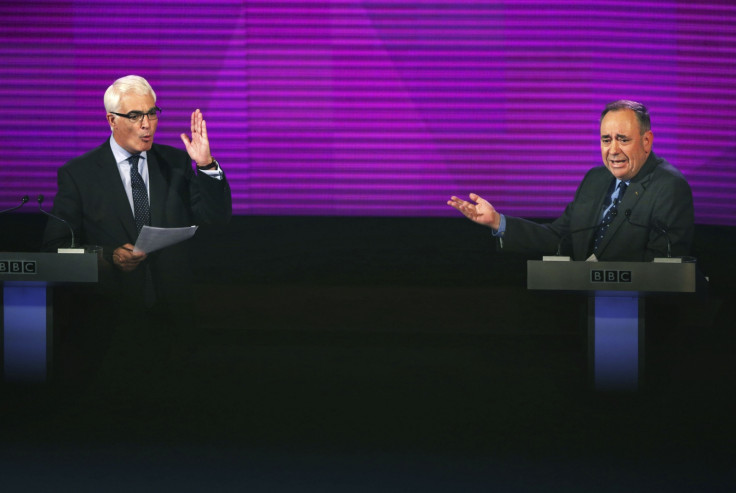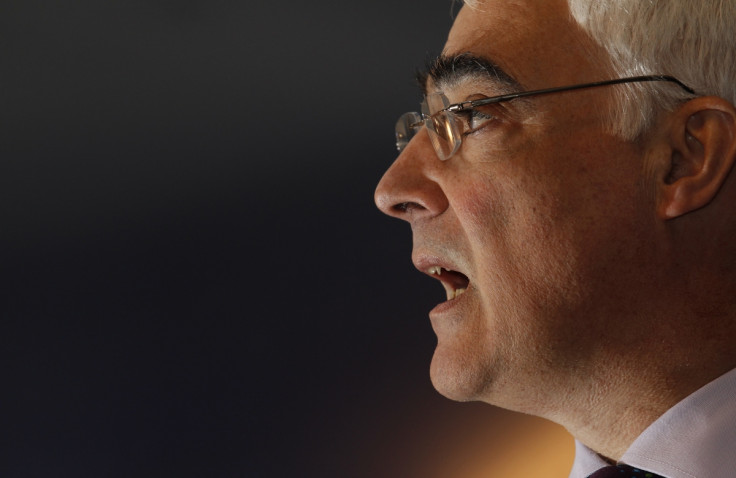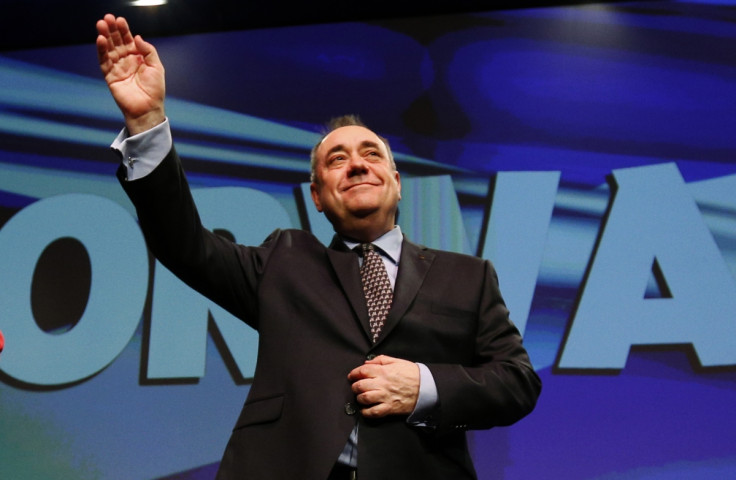Voters Find Salmond Clear Winner in Referendum Debate Sequel against Darling

Voters thought Scottish First Minister Alex Salmond was the clear winner in the second and final televised head-to-head with Alistair Darling in Glasgow last night.

An instant Guardian/ICM poll found 71% of those asked thought the pro-independence candidate Salmond fared better than his "Better Together" opponent Darling in a bad-tempered debate at Kelvingrove Art Gallery and Museum.
In a separate poll conducted by Sky News more than 2,000 people thought Salmond the clear victor in the debate.
Unlike the first debate, in which Darling scored heavily by repeatedly asking what the "Yes" campaigners would do if Scotland could no longer use sterling, Salmond turned the discussion to oil revenues and the future of nuclear weapons.
This is descending into two angry political bruisers locked in a headlock. Salmond's striking more blows but not very edifying #bbcindyref
— Nick Robinson (@bbcnickrobinson) August 25, 2014Even when currency was discussed Salmond seemed less vulnerable than in the first debate, telling Darling: "We don't need permission to use our own currency. The argument actually is that they will deny us the assets of the Bank of England. The reason that won't happen is that if you deny us the financial assets, then the UK will get stuck with all of the liabilities."

Perhaps most damagingly for Darling, Salmond taunted his rival by saying he was in alliance with the Conservative party - who have little support north of the border. Bitterly attacking policies like the so-called "bedroom tax" he sniped: "You're in bed with the Tory Party".
In response Darling said he didn't agree with policies imposed by the Coalition but that it would be better for older people in Scotland if social security costs were spread across the whole of the United Kingdom.
Final Debate Poll Verdict: Salmond Wins the Worm - http://t.co/gRLzf4m4wy pic.twitter.com/3LMGuxyb4s
— Guido Fawkes (@GuidoFawkes) August 25, 2014The debate also provoked greater activity on social media than the first debate, which could not be seen by most viewers across the UK. Around 255,000 tweets took place, compared with 186,000 for the first debate on 5 August. Whether Salmond's victory will result in a long-term rise in support for the "Yes" vote remains to be seen.
© Copyright IBTimes 2025. All rights reserved.






















